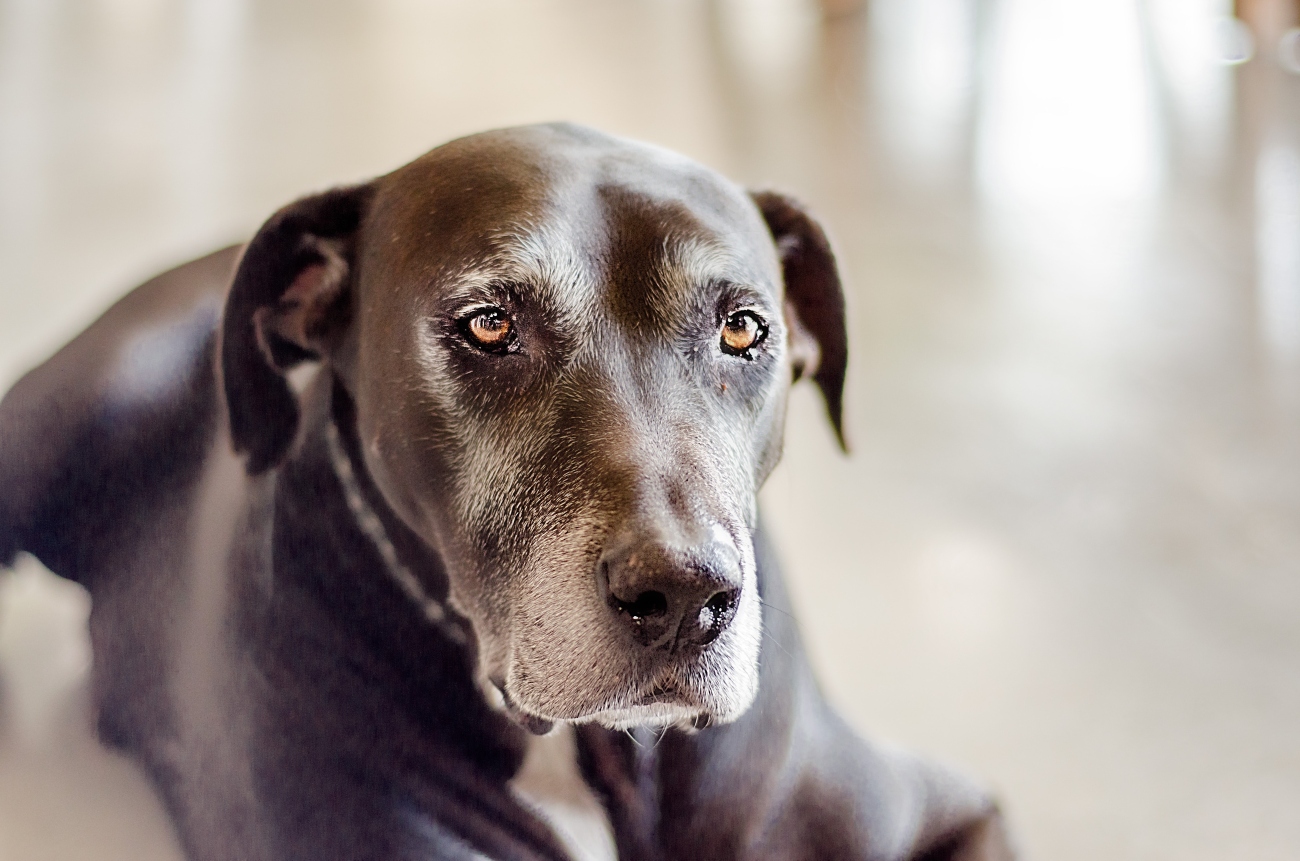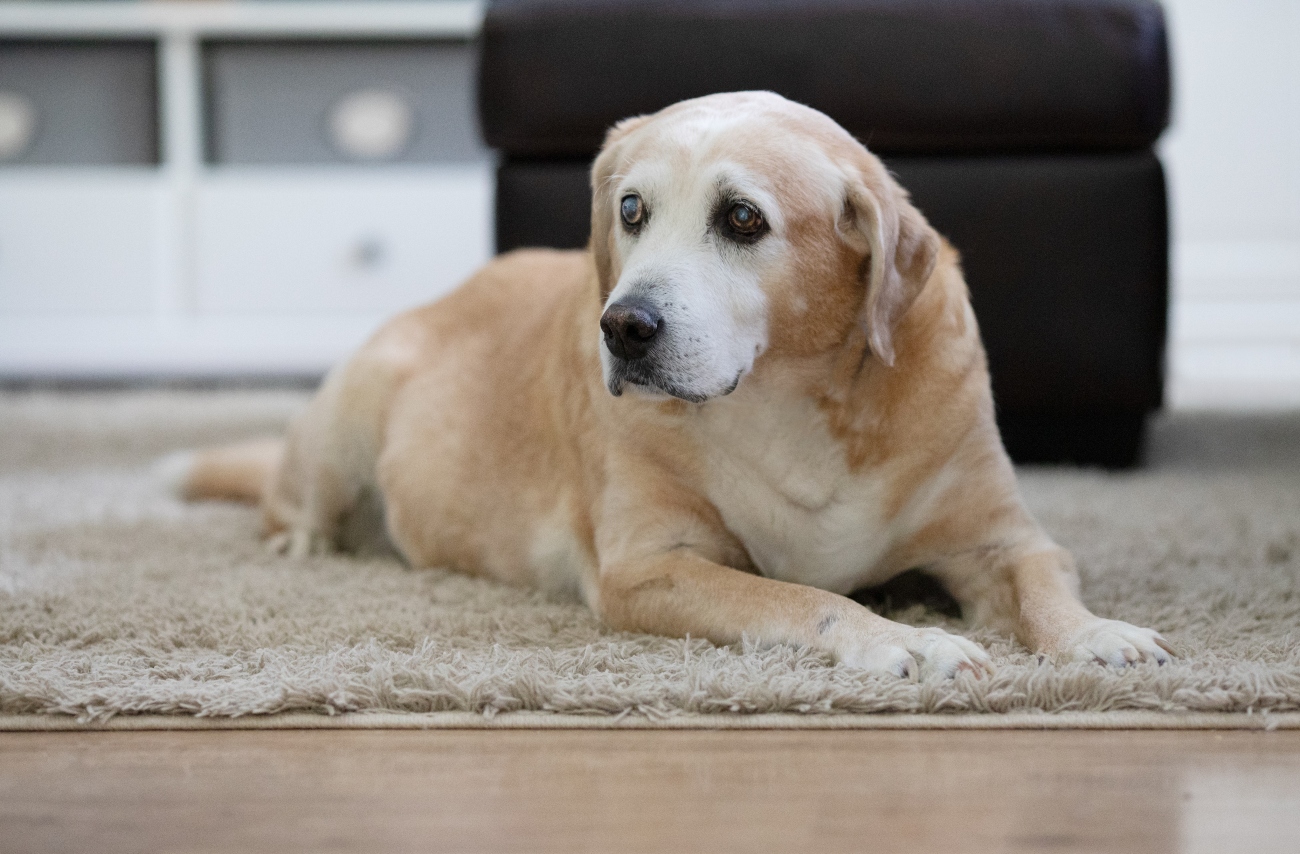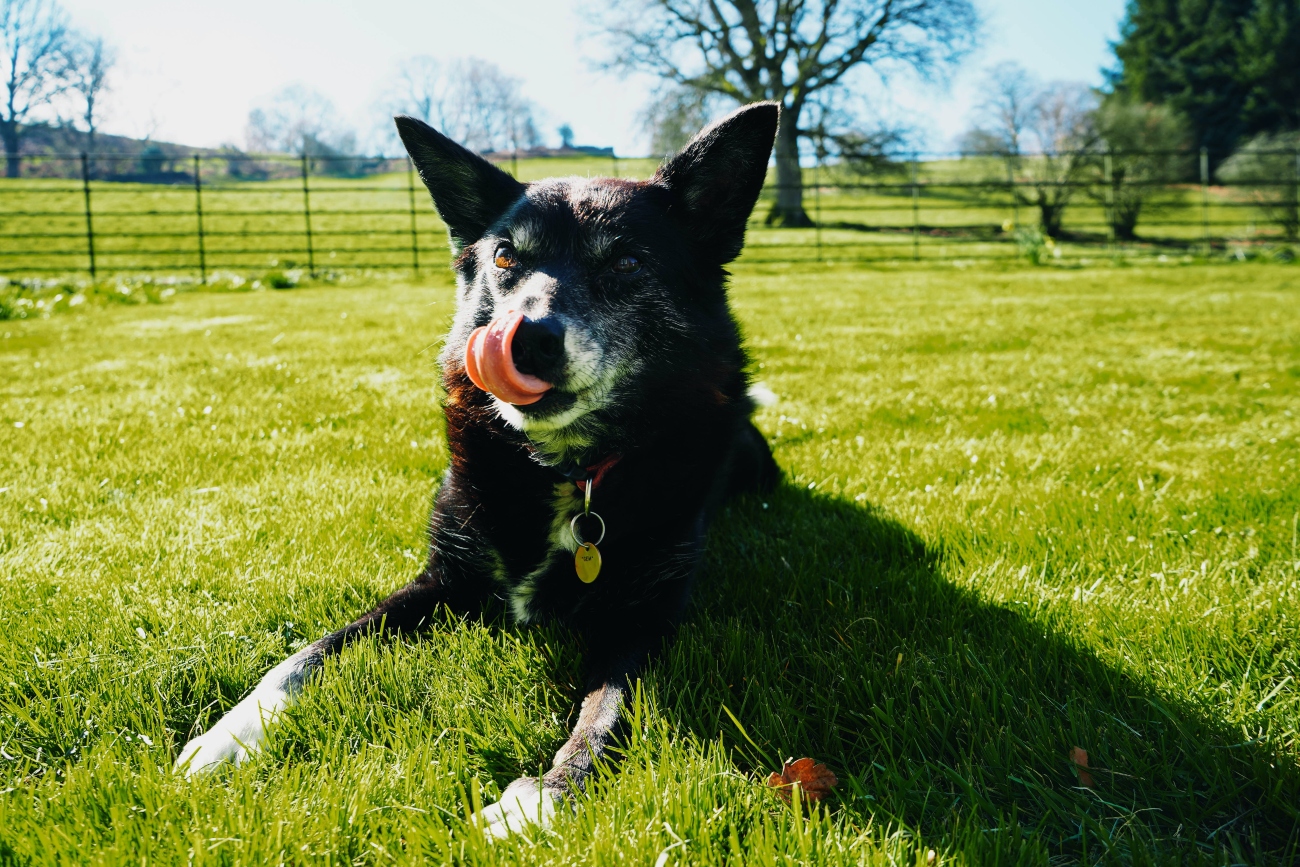
Should I adopt an older dog?
19th October, 2021
If you've thought about adopting a dog, congratulations: you're already thinking of doing a very kind thing for a loving animal that might otherwise face an unhappy life in an animal shelter.
You can take that kindness one step further, though, by adopting an older dog. For these animals, their remaining span of life is looking that much shorter, and the prospect of dying in a shelter without loving owners to provide comfort and affection looks much more likely.
Adopting an old dog, in short, can be a very generous act. But can it work for you, as well as for your senior pet?
As we'll see, adopting an older dog can be a hugely rewarding experience, and can offer one of the closest relationships you're ever likely to form with an animal. You may be able to expect even more love and loyalty from an older dog than you would from a puppy or younger animal.
It's worth being aware, though, that with increased age comes an increased risk of certain health conditions. Vet's bills are likely to increase as your dog ages, and to help cover these costs it’s best to get some specialist senior dog insurance in place.

Making a senior pet's life happy again
Older dogs, once left at a shelter, are, sadly, less likely to find owners than their younger, counterparts. The reasons probably aren't hard to see. For one thing, younger dogs will seem more appealing to many owners as they are likely to offer a longer time together. On top of that – thanks to their (probably) superior health – they should bring with them fewer vet's bills, for the first few years at least.
The younger dogs may often look more attractive, too, with glossier fur, shinier eyes and more of an all-round cute expression – though looks are very subjective when it comes to dog ownership! Whatever the reasoning, those 'cute' looks displayed by younger pets will often have a more emotional pull on would-be owners – they may appear to offer up a more rewarding owning experience, and more likelihood of forming a lifelong bond.
This isn't necessarily the truth, however – as we'll see, older dogs can make the most loyal and loving companions.But this perception does mean that many older dogs can face extended periods of time living in an animal shelter – and can become anxious and depressed as a result. That's why adopting a senior dog can be such a wonderful thing to do – for the dog and, as we'll see below, for you, too.
Older dogs can make excellent pets
The truth is that, because they have already lived quite a life (and, often, not an entirely happy one), older dogs will recognise the safe, warm and loving home you are giving them for what it is. They will, as a result, show their gratitude through immense amounts of love, affection and loyalty.
Having had a bit of life experience, and doubtless the odd unhappy experience they will know that they have found a good thing with you, and will repay you accordingly.
6 reasons to choose an older dog as your pet
- They are great with all ages
Older dogs won't have the boisterous, occasionally over-excitable temperament of younger animals, and as such they can make great family companions – being calm and patient with children, for example, as well as any newcomers to the house. They also make a perfect match with both younger children and older owners, as they're happy to go to bed early and will often relish an afternoon nap!
- They will have lots of love to give
Again: you've taken them out of a place where they were, at best, confused and missing their old family life; at worst, anxious, frightened and miserable. If you can give an older dog a loving home, it will repay you in spades. - They are (relatively) low-maintenance
An older dog won't require the same rigorous exercise programme that they might have needed, say, five years ago. One or two short walks a day will suit them just perfectly. And you won't have to watch them around other dogs to make sure they don't get into fights: they will either remain very calm around other dogs, or simply stay away from larger gatherings altogether. - They wear their personality on their sleeve (or paw)
When you take on a puppy, you never know quite what kind of character they may grow into. With an older dog, there's no mystery – their personality will be clearly defined and you'll very quickly learn how they like to do things. - They won't require any basic training
With an older dog, you’re less likely to experience incessant yapping whenever a stranger passes the house. Someone else has already done all the time-consuming training on your older dog, and they should, hopefully, be fully used to life with humans. - They'll get on just fine with your other pets (probably)
That calm, patient temperament will also be a real bonus around any other animals you may have at home. Your older dog won't want to get into any territorial battles with other dogs in the house: and they won't regard chasing the family cat as the best activity ever invented, either. A peaceful co-existence will be what they're seeking. - Actually, you *can* teach an old dog new tricks
We're going to take issue with the popular saying here. In fact, you can train your dog at any age, and your older canine will be just as smart and receptive to learning new things as any puppy. Indeed, given their calmer temperament and increased attention span, they may just take to learning that little bit better. If you're thinking of, say, agility training, remember to modify the course to suit their reduced mobility.
How to help your older pet to adapt to life with you
We've talked so far about how many benefits older pets can bring. We should also mention, of course, that aging animals can have their own problems, too – especially if they have spent considerable time in an animal shelter. It's good to be aware of a few issues that your older dog may be carrying with them, and to plan their entry into your life accordingly.
For example, life in the shelter will have been fairly lonely and lacking in creature comforts. You can help your new arrival to adapt to life with you by giving them a lovely soft bed, a warm blanket – and huge amounts of love.
You should also be very patient and understanding with their behaviour, especially during their first few days in your company. They may simply want to sleep for hours, even days, on end at first – but don't worry, this is quite normal. They're just adapting to the emotional shock of leaving the shelter and finding themselves somewhere very different.
They may not want to eat, drink or go to the toilet for a few days. The best you can do is to show them where their food and water is, offer them walks without insisting, and generally let them settle in at their own pace.
Health problems in older dogs
Whatever wonderful advantages they may bring, older pets will also carry an increased risk of illness and mobility problems. The rather more complicated health landscape when it comes to older dogs makes the case for older dog insurance all the more compelling. Unlike many insurers, there is no upper age limit when you insure your older dog through Petwise.
The precise illness risk profile will vary from breed to breed, but some age-related health problems you may want to prepare for include:
Mitral valve disease
Some smaller breeds such as Maltese, Cavalier King Charles Spaniels, and Chihuahuas show a greater predisposition to this condition. A partial loss of function in one of the heart valves, this can lead to backflow of blood when the heart contracts.
Dental disease
Again, this is more likely to come about in smaller breeds, because of their smaller teeth and jaws. We recommend regular dental care, either by a vet or at home.
Spinal diseases
These are particularly prevalent among those smaller breeds with longer spines, such as Welsh Corgis and Dachshunds.
Loss of sight
Breeds most susceptible to blindness in older age include smaller breeds such as Boston terriers, French and English bulldogs, Shih-Tzus, Boxers and Pugs.
Loss of hearing
Some dog breeds are more prone than others to congenital deafness. Jack Russells, English setters and Dalmatians are among the at-risk breeds here. There seems to be a link between deafness and colouration – dogs with mostly white or merle (dappled) coats seem to be at increased risk.
Hypothyroidism
Dobermanns and Golden Retrievers are high-risk breeds here.
Arthritis
Unlike some of the complaints we've listed above, arthritis is largely a problem with bigger breeds like Labradors, Dobermanns, Rottweilers and Great Danes. It's also worth noting that giant breeds such as these age more quickly in general than their smaller counterparts. If you do become the proud owner of an older Rottweiler, Great Dane or similar, it's certainly worth keeping in regular contact with your vet in order to catch, for example, any cardiac problems before they have a chance to develop. Again, some form of specialist pet insurance for older dogs is likely to prove useful here.
There are things you can do, in addition, to make domestic life easier for an arthritic older pet:
- A heated pet bed can help alleviate some of the suffering.
- Carpets – on floors and in particular on stairs – will also make it easier for your dog to get around the house, up onto sofas and so on.
- Massaging your dog's spine, tail and feet can be beneficial, improving mobility and neurological connections between the brain and the feet.

First things first: a health check-up
It's a good idea to book your older pet in for a full inspection by a vet as soon as possible after you welcome them into your home.
This first appointment should include blood tests, to get a sense of how well their internal organs are functioning; urine tests, to check for any evidence of bladder infections, kidney problems and a few other diseases; and a blood pressure test. Both high and low blood pressure can be a sign for concern in older dogs.
How long will I have with my older dog?
Beyond pointing out that smaller dog breeds tend to live slightly longer than larger species, we can't answer this question with any certainty – and it's probably more useful to focus on the quality, not the quantity, of your time together.
Whether you have years or a matter of months together, you'll want to make sure that your older pet's time with you is happy and restful. They will make extremely calm, obliging and loyal companions – and you, in turn, can ensure that they enjoy their senior years to the full.

Pet insurance for older dogs from Petwise
Here at Petwise, we think that deciding to adopt an older dog is one of the most generous and rewarding things you can do. And that's why we're pleased to be able to offer you various levels of pet insurance for older dogs, to suit your needs and budget.
A specialist pet insurance policy can help cover some of the costs that you may come up against as an owner of an older animal, helping to ensure that your beloved companion can enjoy its senior years in the best of health.
Benefits of insuring your older dog with us can include:
- No co-payment excess
- No upper joining age limit
- Dental cover as standard
All Petwise policyholders will also have access to our 24-Hour Vet Helpline, which you can ring for advice if you have any questions about your older dog.
Contact us to find out more about specialist pet insurance for older dogs.